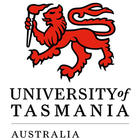Bachelor of Natural Environments and Conservation and Master of Protected Area Conservation
Bachelor of Natural Environments and Conservation and Master of Protected Area Conservation
A Bachelor of Natural Environment and Conservation gives you a broad, multi-disciplinary approach to understanding and tackling environmental issues, and develops your skills to conserve biodiversity and geodiversity in one of the more difficult times in the history of nature on the planet and build a better future for us…
Categories
COURSE DESCRIPTION
A Bachelor of Natural Environment and Conservation gives you a broad, multi-disciplinary approach to understanding and tackling environmental issues, and develops your skills to conserve biodiversity and geodiversity in one of the more difficult times in the history of nature on the planet and build a better future for us all..
Course objectives
The Bachelor of Natural Environments and Conservation helps you develop the ways of thinking, integrative knowledge and practical skills that will enable them conserve biodiversity and geodiversity in one of the more difficult times in the history of nature on the planet: the Anthropocene extinction event caused by unrestricted economic growth.
The structure of the degree ensures that you gain a broad cross-disciplinary understanding of the natural environments and wilderness, while being able to specialise in areas of interest. In addition to specialist knowledge and skills, this degree also develops a wide range of general abilities applicable to careers across any sector, including communication, data collection, fieldwork, analysis, information retrieval and presentation, planning and policy development.
Graduates will be able to draw on their multidisciplinary range of knowledge and skills as they seek to address complex socio-environmental problems that have no obvious solution, and often generate considerable public interest. For example, we know that communicating climate change science is only part of the challenge and that professionals working in this area need to be able to navigate politics and social values to affect change.
Learning Outcomes
1 Gather, synthesise and critically evaluate information on natural environments and their relationships with people.
2 Explain the physical geography, politics and management of natural environments to contribute to political and social discourse.
3 Apply spatial, scientific and social science techniques and tools in keeping with relevant professional standards to answer questions related to the conservation and exploitation of natural environments.
4 Disseminate information and concepts about natural environments with other professionals and the public.
5 Produce and critique environmental assessments and natural environment management plans to improve ways people interact with the environment.
Career outcomes
This interdisciplinary degree provides you with the knowledge and skills to gain employment in a wide variety of sectors related to natural environments and conservation, vital as we continue to expand our presence on the earth and need to live in harmony with the natural environment to ensure our survival.
Career opportunities include:
- Environmental protection
- Environmental organisations and consultancies
- Land and heritage management
- Nature-based and eco-tourism
- Parks planning and management
- Resource-based industries such as forestry
- Natural resource management
Conservation professionals need to be trained in aspects of governance, planning and management in order to ensure the protected area estate effectively conserves nature and natures benefits to people.
REQUIREMENTS
Admission to undergraduate courses at the University of Tasmania requires the completion of qualifications equivalent to a 12th year of education in Australia.
Most of our undergraduate programs have the following English language requirements.
IELTS (Academic) – 6.0 (no individual band less than 5.5)
TOEFL (iBT) 72 (no skill below: Reading 10; Listening 9; Speaking 16; Writing 19)
PTE Academic 50 with no score lower than 42
UTAS Access-English Level 6 – 60% (no individual score less than 55%)
Cambridge CAE (Certificate of Advanced English) – B Grade
Cambridge CPE (Certificate of Proficiency in English) – C Grade
Cambridge BEC (Business English Certificate) Higher – C Grade
EDUCATIONAL INSTITUTION
The University of Tasmania was officially founded on 1st January 1890 and is located at Sandy Bay, Tasmania. In addition to the main campus at Sandy Bay, it also operates out of the Newnham Campus and the Cradle Coast Campus. The most popular courses offered are the environmental studies that include wilderness management, marine sciences and indigenous studies in Tasmanian literature. Other unconventional courses include agriculture development, studies on the community and population and ocean study programs. The university also comprises of a Music Conservatorium, Art school and a School of Clinical studies.




